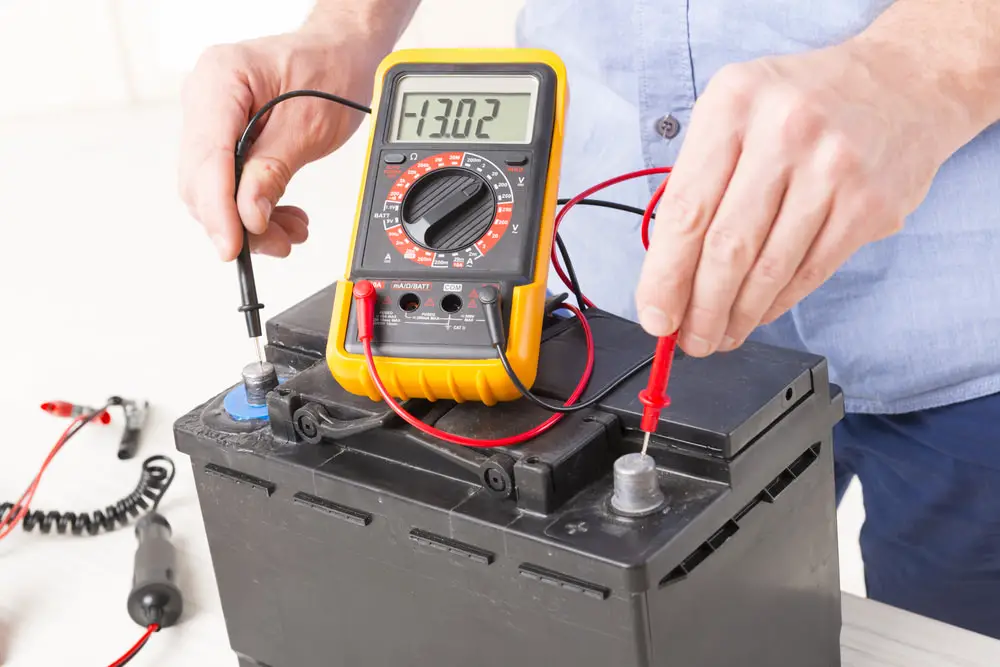Your car’s battery is like its heart. When it’s healthy, everything runs smoothly. But what happens when that car battery begins to fail? You might find yourself stranded or dealing with a vehicle that just won’t start.
That’s why knowing how to check your car’s battery health is crucial, As this might save you from some unforeseen disappointment faced with battery issues. With a little right knowledge and the right tools, you can keep your battery in tip-top shape.
Let’s read further on How to check your car battery health and ways to keep it in good top condition.
What Does your Car Battery Do?
Before jumping into the health check, let’s take a moment to understand what a car battery does. Essentially, your battery powers the starter, lights, and all electrical components when the engine isn’t running.
This is very important for ignition and overall performance. Most car batteries last around three to five years, but several factors can impact their lifespan, including climate, driving habits, and maintenance.
Signs that Shows that your Car Battery is Weak
Recognizing the signs of a weak battery can help you avoid unexpected breakdowns. Here are a few common signs to watch out for:
1. low Engine Crank: If you notice that your engine is cranking slowly when you turn the key, that’s a clear sign your battery might be losing its charge.
2. Dim Lights: If your headlights seem dim or flicker, especially when idling, your battery might be struggling.
3. Check Engine Light: Sometimes, a weak battery triggers the check engine light. It’s worth having it checked.
4. Corrosion on Battery Terminals: A white, ashy substance around the battery terminals can indicate corrosion, which can impact performance.
If you’re experiencing any of these signs, it’s time to check your battery health.
Tools You’ll be Needing For Checking your Car Battery Health
To check your battery health, you’ll need a few simple tools:
- Digital Multimeter: This tool measures voltage and can help you determine if your battery is functioning correctly.
- Battery Tester: A specialized device designed to assess battery health and charge.
- Protective Gear: Safety glasses and gloves to protect yourself while working with the battery.
Step-by-Step Guide to Check Battery Health
Here are step process to follow carefully in other to check your car battery health.
Step 1: Safety First
Before you start, ensure your car is turned off, and you’re parked in a well-ventilated area. Put on your gloves and safety glasses to protect yourself from any potential battery acid.
Step 2: Visual Inspection
Open the hood and visually inspect the battery. Look for signs of damage, leaks, or corrosion on the terminals. If you see corrosion, you can clean it with a mixture of baking soda and water. Make sure to disconnect the terminals before cleaning to avoid any electrical shocks.
Step 3: Use a Digital Multimeter
- Set your multimeter to the 20 DC volts setting.
- Connect the red probe to the positive terminal (+) and the black probe to the negative terminal (-).
- A healthy battery should read between 12.4 and 12.7 volts. If it’s below 12.4 volts, your battery might be weak and need recharging or replacement.
Step 4: Battery Tester Check
If you have a battery tester, follow the instructions provided with it. Generally, you’ll connect the tester to the battery terminals and follow the prompts to determine the battery’s health. This device usually gives a clear reading on whether your battery is good, weak, or needs replacement.
What to Do If Your Battery Is Weak?
If your tests indicate that your battery is weak, don’t panic! Here’s what you can do:
- Recharge the Battery: If the voltage is low, you might be able to recharge it with a battery charger. Follow the charger’s instructions carefully.
- Clean Connections: Ensure the battery terminals are clean and free from corrosion, which can affect performance.
- Seek Professional Help: If the battery continues to show low voltage after charging, or if you’re unsure about the results, it’s best to visit a professional mechanic. They can give you a thorough diagnosis and suggest whether you need a new battery.
Preventing Future Issues of Battery Failure
Once you’ve checked your battery’s health, take steps to maintain it:
- Regular Inspections: Check your battery at least once a year, especially before winter when cold weather can significantly affect battery performance.
- Keep It Clean: Regularly clean your battery terminals to prevent corrosion.
- Drive Regularly: If you don’t use your car often, consider taking it for a short drive every couple of weeks to keep the battery charged.
Frequently Asked Questions
Here are helpful answers to frequently asked questions.
Can I Check My Car Battery Health Without Tools?
Yes, you can perform a basic visual inspection without tools. Look for signs like corrosion on terminals, swollen battery casing, or leakage. However, for accurate results, a multimeter or battery tester is necessary.
How Long Does a Car Battery Usually Last?
On average, a car battery lasts 3-5 years, depending on factors like driving habits, climate, and maintenance. Regularly checking the battery’s health can help you predict when it might need replacement.
What Voltage Should My Car Battery Have When the Engine is Running?
When the engine is running, the battery voltage should range between 13.7 to 14.7 volts. This indicates that the alternator is properly charging the battery. If the voltage is outside this range, there may be an issue with the charging system.
How Do I Maintain My Car Battery for Better Longevity?
To extend your battery’s life:
- Clean the terminals regularly to prevent corrosion.
- Ensure the battery is securely fastened to avoid vibrations.
- Avoid frequent short trips as they don’t allow the battery to recharge fully.
- Check the water level in the battery (for non-maintenance-free batteries) and top it up with distilled water if necessary.
Can a Weak Battery Damage Other Car Components?
Yes, a weak battery can strain the alternator and starter, leading to their premature failure. It may also cause inconsistent electrical performance, affecting components like lights, radio, and sensors. Regular battery checks can prevent such issues.
Conclusion
Your car’s battery is essential for smooth operation, and keeping it healthy is crucial for avoiding unexpected breakdowns. By learning how to check your battery’s health and recognizing the signs of wear, you can save yourself time, money, and stress down the road.

